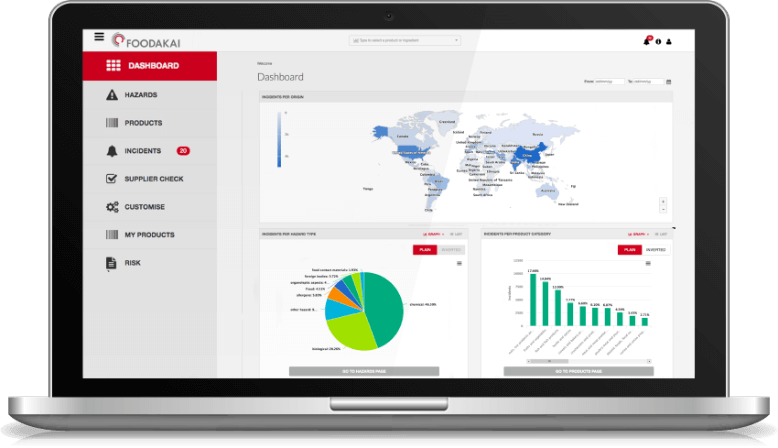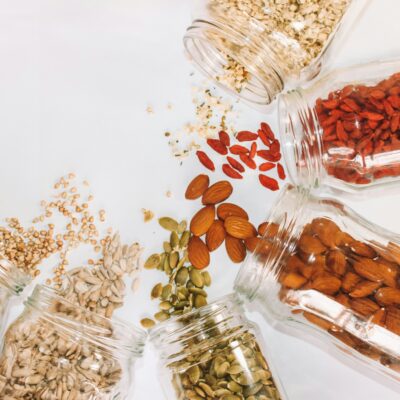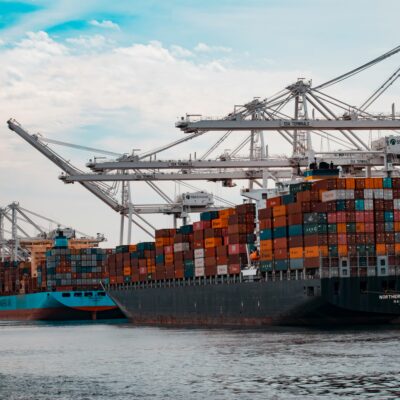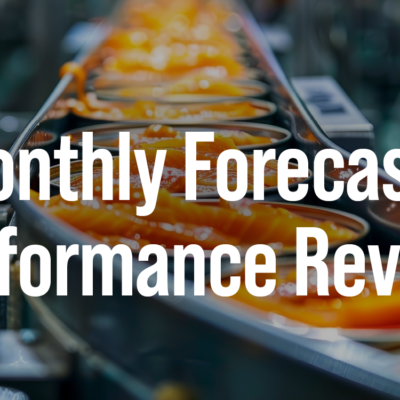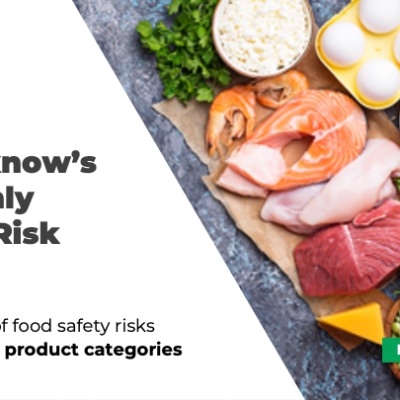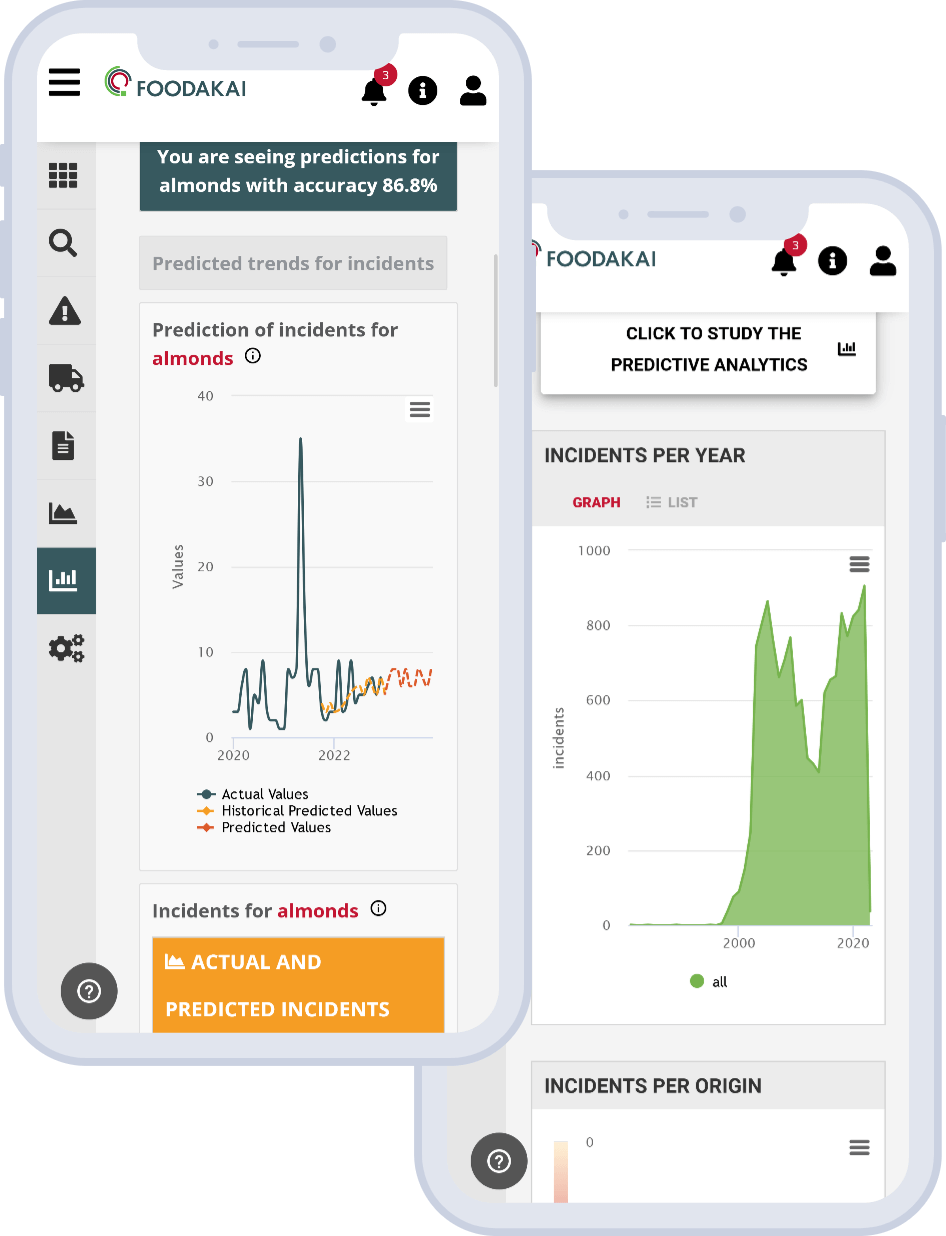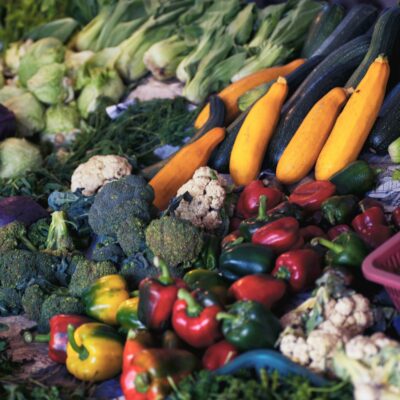
Will the Fraud Risk Increase in 2024 for Olive Oil? Insights and Forecasts for Food Safety Experts
The olive oil industry faces a multitude of challenges yearly, fluctuating due to environmental, economic, and regulatory factors. The recent year was particularly challenging for olive oil production, especially in renowned regions like Greece, where the yield significantly plummeted. This scarcity has not only escalated the price of new olive oil but also raised concerns about market dynamics and the implications for food safety and quality assurance professionals. As we navigate through these turbulent times, the questions of how these changes will affect the market and what considerations should be made when sourcing olive oil from affected areas like Greece become increasingly pertinent.
Climate change significantly impacted olive oil production for the 2023/2024 season. Here's what we know:
- Global olive oil production is expected to be the lowest in over a decade, at around 2.4 million tons. This marks the second year in a row of decline.
- Factors like extreme heat, drought, and unpredictable weather patterns are being attributed to climate change.
- These conditions harmed olive tree flowering and fruit development.
- The Mediterranean region, a major olive oil producer, was hit particularly hard . Some farmers even reported losing up to 60% of their harvest .
The Impact of Low Yield on Olive Oil Quality
The diminished availability of olive oil could potentially open the market to lower-quality products. In an effort to salvage their production amidst unfavorable conditions, some farmers have resorted to increased usage of plant protection products and fertilizers. While these measures are aimed at preserving the yield, they inadvertently elevate the risks of pesticide residues surpassing the safe regulatory limits, posing a significant threat to consumer health and safety.
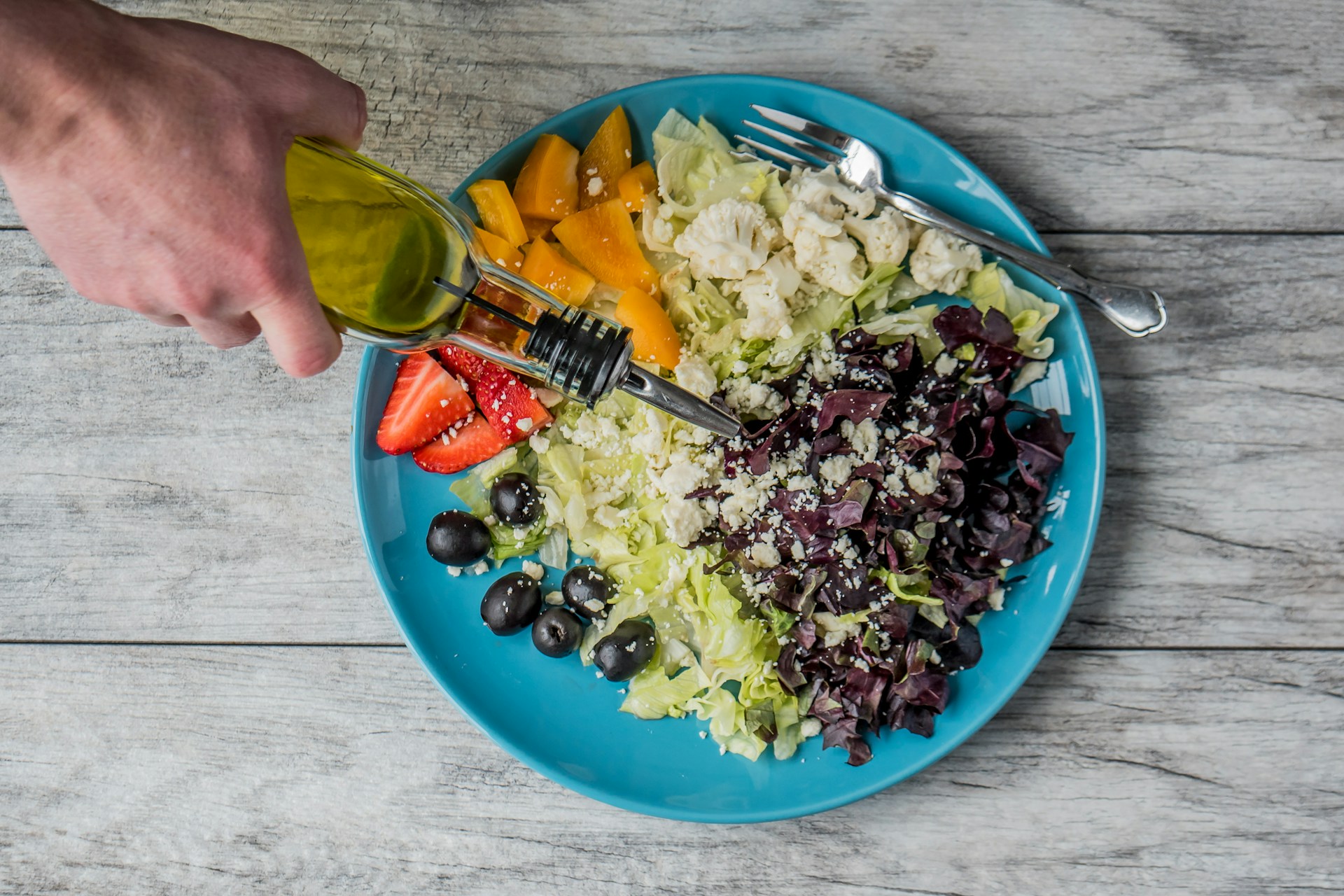
Forecasting Models Predict Increased Risks
Advanced forecasting models, which analyze historical data on incidents within the olive oil sector, project concerning trends for the near future. The following charts showcase forecasted trends for olive oil as of 18-03-2024.
Historical forecasts for olive oil
FOODAKAI, the AI-powered platform that forecasts increasing risk, identified the peaks in summer and autumn 2022 as well as in January 2024.
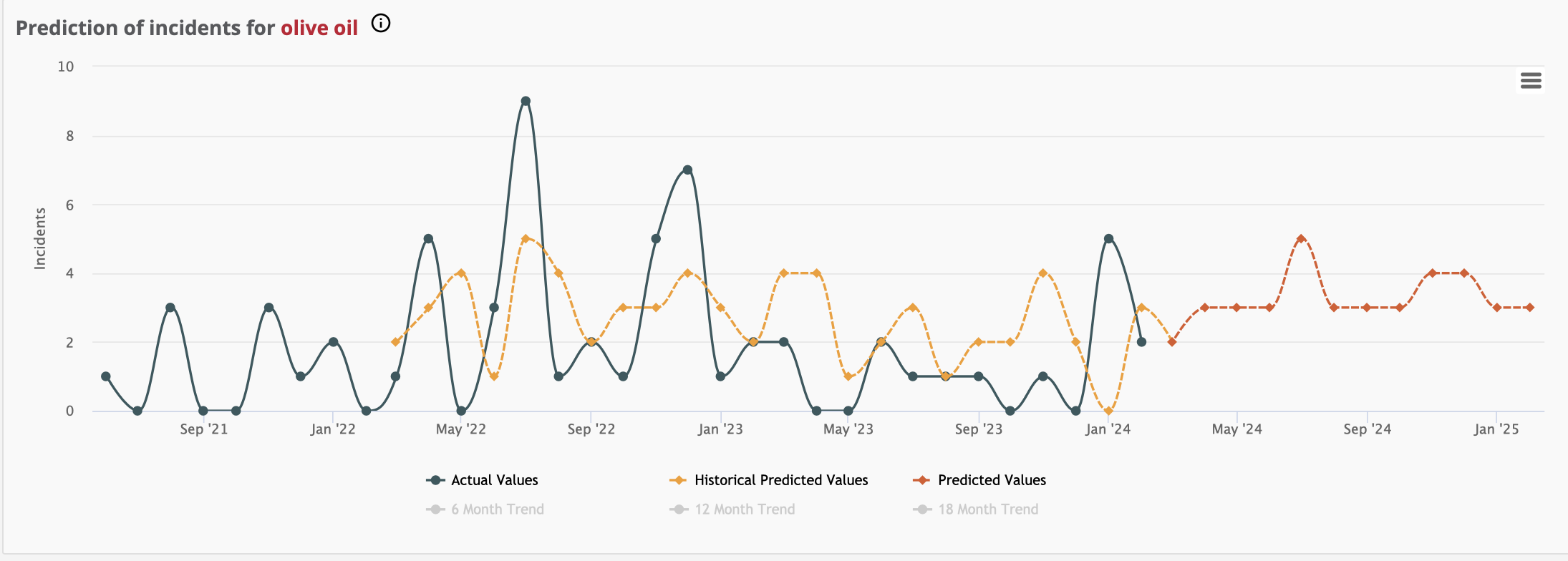
An increasing trend of incidents by 166% is forecasted for olive oil.
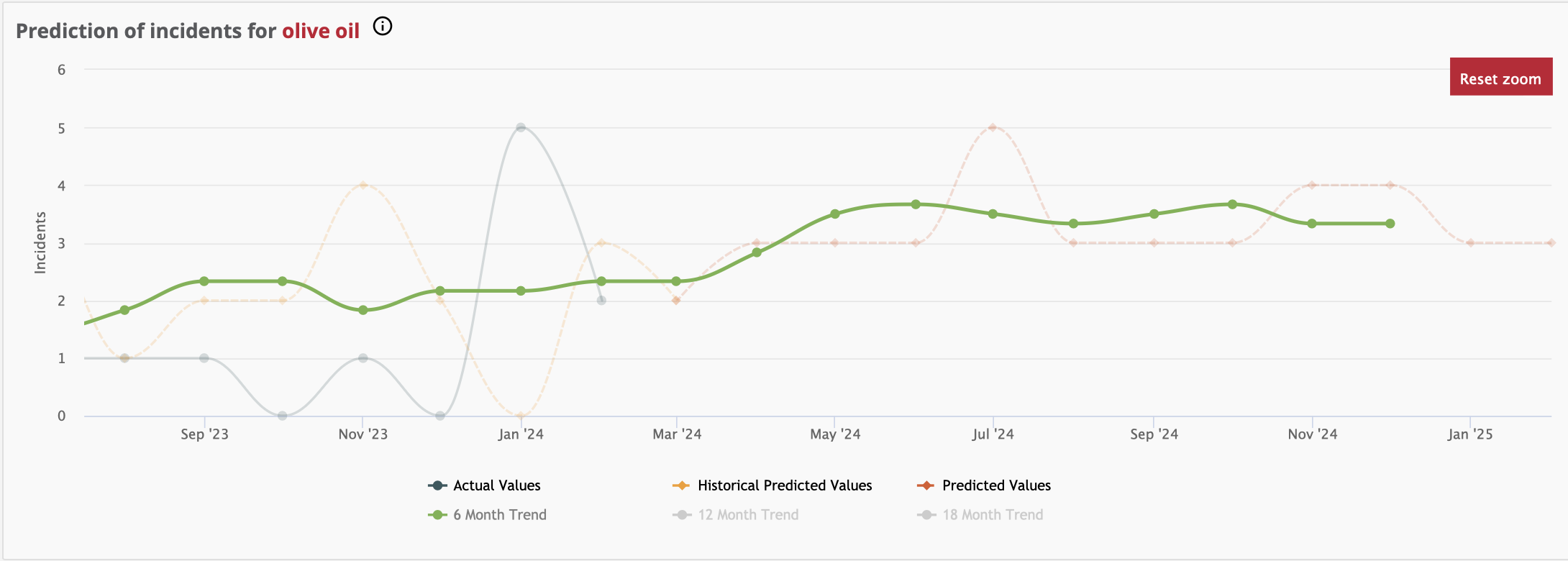
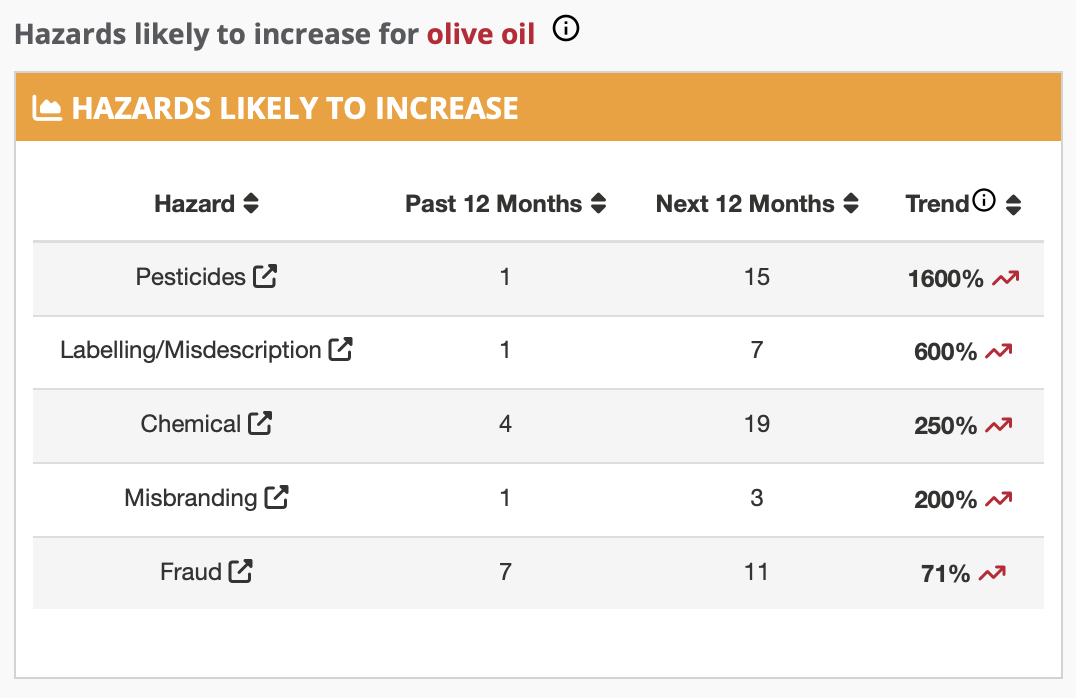
Two key issues are at the forefront of these forecasts
1. Pesticide Residue Incidents: there is an anticipated increase in incidents involving pesticides exceeding regulatory limits. This not only compromises the quality of the olive oil but also places immense pressure on producers and regulators to ensure that products reaching the market meet stringent safety standards.
2. Fraud Issues: the scarcity and resulting high prices of olive oil are predicted to exacerbate fraud issues within the industry. Adulteration, mislabeling, and other fraudulent practices may become more prevalent as unscrupulous entities seek to capitalize on the situation. This underscores the need for rigorous testing, certification processes, and traceability mechanisms to protect consumers and uphold the integrity of olive oil products.

Navigating the Challenges: Recommendations for Industry Stakeholders
For food safety and quality assurance experts, the anticipated challenges in the olive oil market necessitate proactive measures and strategies. Ensuring the authenticity and safety of olive oil will require enhanced surveillance, stricter compliance with regulatory standards, and the adoption of innovative technologies for product testing and traceability.
- Enhanced Surveillance: Monitoring of olive oil products for pesticide residues and other contaminants should be intensified, leveraging advanced analytical techniques to detect and quantify potential hazards. Utilize AI technology highlight the high risk and enable risk based monitoring in testing and auditing. Dynamic risk is important and should not be based on outdated data.
- Regulatory Compliance: Stakeholders must ensure strict adherence to local and international safety and quality standards, fostering transparency and accountability in the supply chain.
- Innovation in Product Testing: Adopting cutting-edge technologies, such as DNA-based testing and blockchain for traceability, can significantly bolster efforts to detect fraud and verify the provenance of olive oil products.
- Consumer Education: Educating consumers about the value of certified olive oil products and how to recognize authentic, high-quality olive oil can play a crucial role in mitigating the impact of fraud.
The olive oil industry stands at a crossroads, with the challenges of the recent production year casting a long shadow over the market's future. As food safety and quality assurance professionals, our role in navigating these challenges is critical. By embracing advanced technologies, strengthening regulatory frameworks, and fostering collaboration across the supply chain, we can mitigate the risks and ensure that the olive oil market remains robust, resilient, and, most importantly, safe for consumers.
Learn more about how FOODAKAI can elevate critical food risk assessment tasks with a call. Schedule a call here.
Want to receive helpful food safety intelligence in your inbox?
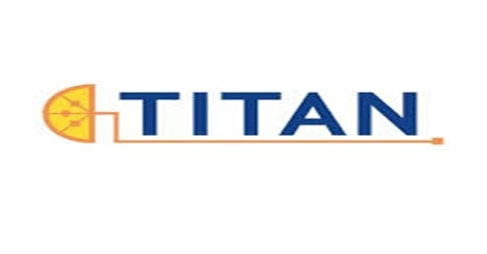 Funding for this research has been provided by the European Union’s Horizon Europe innovation programme ΤΙΤΑΝ (Grant Agreement Number 101060739). Funded by the European Union. Views and opinions expressed are, however, those of the author(s) only and do not necessarily reflect those of the European Union or European Research Executive Agency. Neither the European Union nor the granting authority can be held responsible for them.
Funding for this research has been provided by the European Union’s Horizon Europe innovation programme ΤΙΤΑΝ (Grant Agreement Number 101060739). Funded by the European Union. Views and opinions expressed are, however, those of the author(s) only and do not necessarily reflect those of the European Union or European Research Executive Agency. Neither the European Union nor the granting authority can be held responsible for them.

